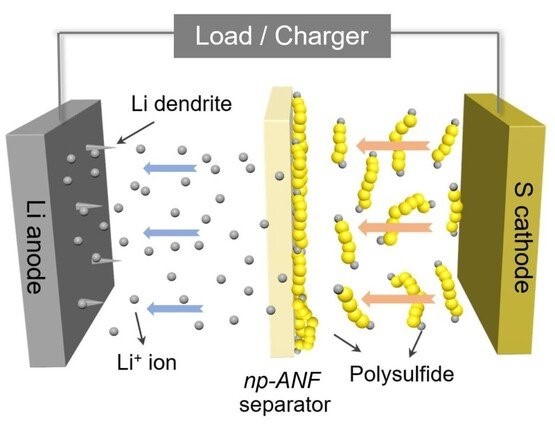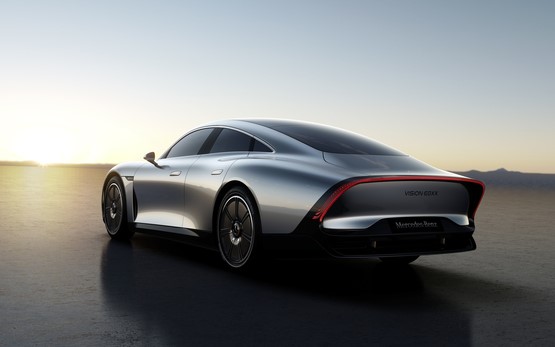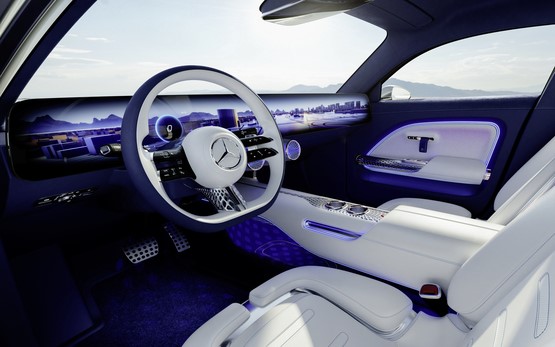Thursday, 17. February 2022
New electric vehicle (EV) charge points, installed at home and in the workplace from May, will be pre-programmed to switch off during peak hours to ease pressure on the National Grid.
A ‘randomised delay’ of up to 30 minutes, when there is high demand from motorists, will also be introduced as more company car drivers make the switch to EVs away from diesel and petrol.
New chargers will not operate from 8am to 11am and 4pm to 10pm, but owners and fleets will be able to override the preset times to take account of night workers and people who have different schedules.
Public chargers and rapid chargers, on motorways and A-roads, will be exempt, reports The Times.
Tanya Sinclair, policy director for UK and Ireland at ChargePoint, said: “Concerns surrounding the UK’s grid to support the charging of electric vehicles is mounting.
“The challenge for the Government, and perhaps the wider electricity system, is ensuring the ‘smartness’ in every charger is actively used by consumers, and managing the load represented by the legacy charging infrastructure already in the field which is not smart.”
The National Grid has estimated that 80% of EV drivers will use smart charging by 2050 and this will help balance almost half of the UK’s energy demands brought on by the move to zero emissions driving.
It says that around 45% of homes will actively help to balance the grid, offering up to 38GW of flexible electricity to help manage peaks and fill troughs in demand.
Smart changing means EV owners can plug in their vehicles and a management system will top up the vehicle at times that will be most beneficial to manage energy demand.
It also allows drivers and fleet operators to manage their charging stations remotely, implement new features automatically and gather data about how chargers are being used and by whom.
Government consultation on smart charging
The move to a default off-peak charging setting was first mooted in a Government consultation on Electric Vehicle Smart Charging, in 2019.
In its response to the consultation, published recently, it said that many respondents raised concerns about defining a specific off-peak time period in legislation, suggesting it could result in a secondary peak in demand.
Based on the feedback, it said it would adopt a more “nuanced approach” by mandating that smart charge points must prompt users to input a charging schedule and they must be preset to offer users a charging schedule that by default prevents EVs from charging at peak times.
During first use, the user must be given the opportunity to edit or remove this setting, it said. The user must also be able to remove or edit this default setting at a later date.
Peak times will be defined in legislation as 8am to 11am and 4pm to 10pm on weekdays. This time window, the Government says, is consistent both with its internal projections of expected EV demand, and with various external studies of EV charging patterns.
It explains that mandating the setting of a default charging mode will help mitigate the risk that some users do not engage with smart charging offers, and instead charge during peak times.
Importantly, it adds, mandating that users must be informed of and prompted to edit the pre-set charging schedule during first use of the chargepoint will help mitigate the risk that any default setting causes confusion and negatively impacts the user experience.
The consumer override and edit functions will ensure that users can turn off or edit their charging schedule, for example where they wish to sign-up to a DSR service such as a smart tariff.
Defining a peak time period in legislation instead of an off-peak period could encourage greater variation in approach amongst charge point sellers, thereby helping to mitigate the risk of a default mode requirement causing secondary peaks in demand, it argues.
However, it says it will monitor the effectiveness of this approach “closely” as part of our post-legislation evaluation.
The upcoming 2021 Smart Systems and Flexibility Plan will outline the steps that Government is taking to help drive the uptake of smart charging offers, including work to help ensure that consumers have confidence in the smart charging market.
Ben Fletcher, associate director of EV at Moixa, said: “Concerns surrounding the grid being able to support charging of electric vehicles aren’t new and the Government’s proposed plans around smart charger capabilities are a good way of answering this.
“The challenge is ensuring consumers are given the right tools to put them in control, and allow them to intelligently charge in an easy, flexible way that is convenient for them.
“Intelligent EV charging not only allows individuals greater control over the power in their vehicle but also enables greater access to cheaper, greener energy. In turn, this ensures that drivers can decide when they want their vehicle to be ready by and the system then optimises when the vehicle charges.”
Moixa, through its Smart Battery hardware and Gridshare software, facilitates smart energy storage and sharing. “We facilitate and interpret interactions between energy storage devices and the grid, enabling data driven optimisation,” explained Fletcher.
“This means we can alleviate the demand on the grid and pave the way for smart EV charging, as well as help companies manage energy storage using advanced analytical data.
“Intelligent home charging is critical to help EV owners save money on their energy bill by tapping into cheaper energy rates while also enabling more renewable energy on the grid by integrating with increasingly agile tariffs.”
News of the charge point ‘switch off’ comes after MPs on the transport committee warned that unless charging habits change the charging needs from millions of new EVs will cause blackouts to parts of the country.
In a report – Zero emission vehicles – published by the transport committee in July, the MPs set out a series of recommendations to Government to boost the production and purchase of EVs. By Graham Hill thanks to Fleet News
Share My Blogs With Others:
These icons link to social bookmarking sites where readers can share and discover new web pages.

























